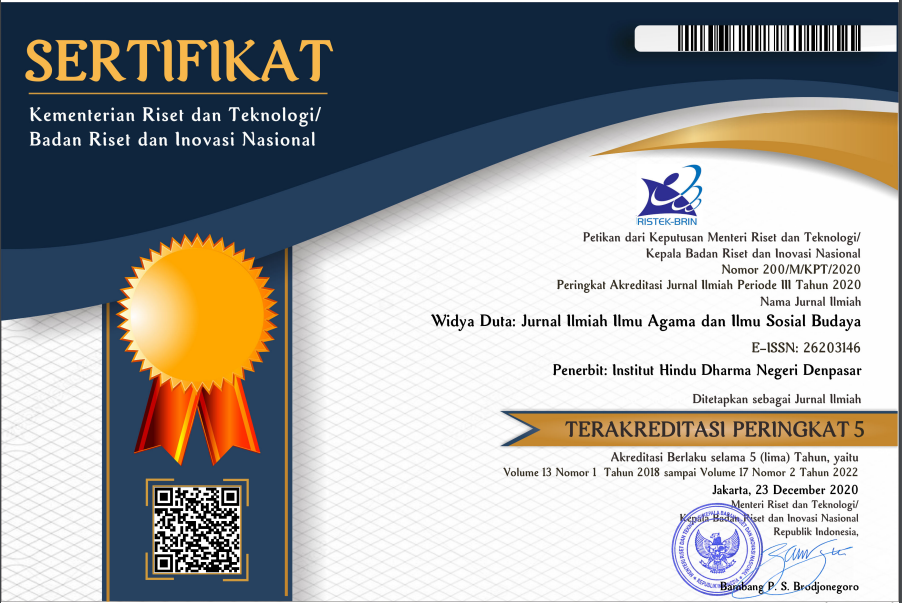THE EXISTENCE OF PURUSA AND PRUDANA IN INHERITANCE ACCORDING TO BALINESE CUSTOM LAW
DOI:
https://doi.org/10.25078/wd.v18i1.2017Keywords:
Inheritance, Purusa, Pradana, Adat LawAbstract
Purusa and pradana are two important concepts in Balinese Inheritance Customary Law which in simple terms purusa is defined as male and pradana is defined as female. In its development, the meaning of purusa and pradana in Balinese Inheritance Customary Law is no longer that simple but has a broader meaning, namely purusa is interpreted as a son and/or daughter (in this case as sentana rajeg) who becomes the main heir while pradana is interpreted as as sons and/or daughters who will later leave their families and rights and obligations due to marrying out to follow their husband or wife. The majority of indigenous peoples in Bali embrace Hinduism and adhere to a patrilineal kinship system commonly referred to as kramusa/purusa. Inheritance in Balinese Customary Law does not only involve the distribution of inheritance in the form of property or in the form of materials, but also includes immaterial inheritance, namely inheritance in the form of responsibilities and obligations (swadharma) to ancestors and the community. Children as heirs who are able to continue the swadharma of their deceased parents can be appointed as heirs. In accordance with the concepts of purusa and pradana as legal principles in the inheritance of Balinese Customary Law that purusa does not have to mean a son and pradana does not have to mean a daughter. Either a boy or a girl can become a purusa or a pradana.





